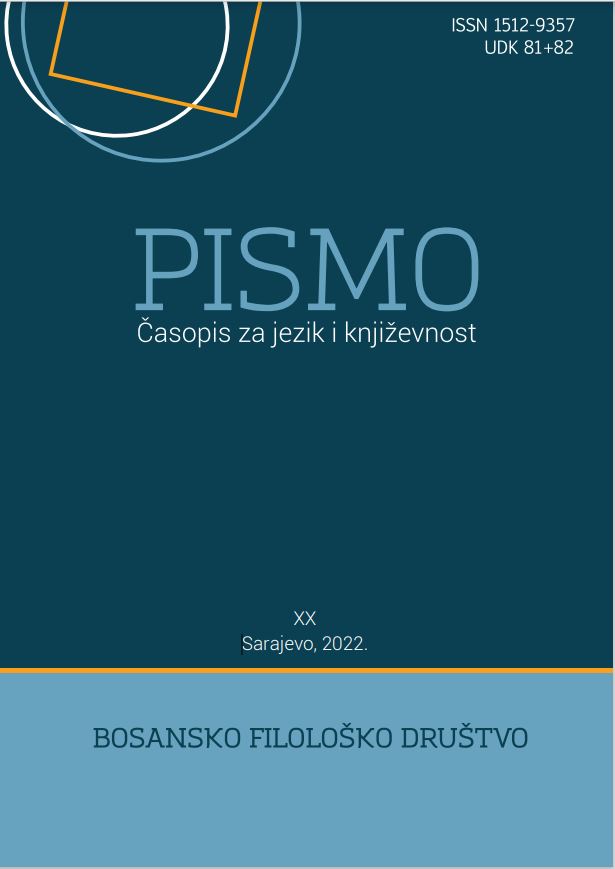Glagolska valencija u idiomskim skupinama
Verb Valency in Idioms
Author(s): Azra Hodžić-ČavkićSubject(s): Syntax, South Slavic Languages
Published by: Bosansko filološko društvo
Keywords: Lucien Tesnière; valency; verb valency; syntactic “incorrectness”; idiomatic surrounding; idioms;
Summary/Abstract: The verb in a dependency model of grammatical structure has a central role and therefore exemplifies the approach to natural language as being verb centric. According to the model of dependency grammar, each verb has a number of actants that can be used with that verb. French linguist Lucien Tesnière did not consider valency as something static. On the contrary, according to him, valency becomes dynamic when it comes into an idiomatic surrounding since the cumulative semantic of the construction takes over the behavior of morphology and syntax of its own components. Although it changes the syntactical behavior, it has no effect on the semantic structure of the verbs. Verbs acquire or lose one of the actants just as a sign of a formal change, but semantically speaking, the verbs remain unchanged. In this paper we have dealt with the idiosyncrasy of idiom groups within the corpus of verbal idioms. We showed that the specificities of the category of cognate objects are still conditioned by the so‑called idiomatic principle. Namely, in the structure of verbal tautological idioms, only the morphemic version of the verb can appear as the nominal component, but these cognate objects do not require the appearance of adjectival complements. Nevertheless, the idiomatic principle dictates that verb components cannot be passivized due to the fact that the role of the undergoer is actually abolished from the real argument structure of the transitive verb for semantic reasons. Since these are semantically fixed structures, and thus passivation will be allowed only if the meaning is not affected. The second group of idioms illustrates the significance of metonymy for the redefinition of the argument structure of verbs. In idioms there are certain unexpected cases of nouns, for instance, nouns in the genitive case “suffer” from actions of the verbs according to the metonymy (glava, džan, etc.). There are also examples with nouns in the instrumental case which activate the continuum of metaphor and metonymy, thus affecting the argument structure of the verb.
Journal: Pismo - Časopis za jezik i književnost
- Issue Year: 2022
- Issue No: 20
- Page Range: 35-51
- Page Count: 17
- Language: Bosnian

